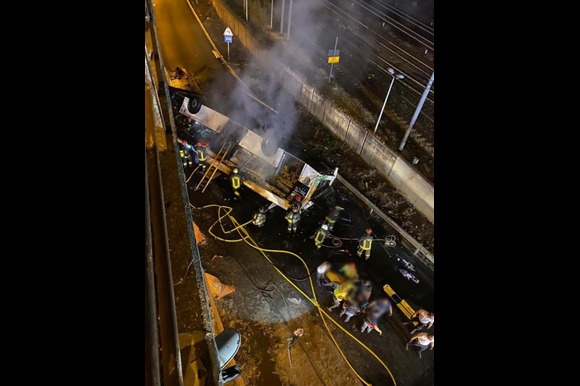At least 45 Indian nationals, all Muslim pilgrims, have tragically lost their lives after a bus transporting them between major religious sites in Saudi Arabia met with a deadly accident, Indian officials confirmed.
According to Indian media outlets, the vehicle was travelling from Mecca to Medina on Monday when it collided with a diesel tanker along a major highway. The impact caused catastrophic damage, leaving only a single survivor out of the 46 passengers onboard.
Hyderabad Police Commissioner VC Sajjanar, whose jurisdiction includes many of the pilgrims’ home communities, described the crash as “deeply disturbing”. Speaking to reporters, he said, “Based on early information, 46 individuals were on the bus, and tragically, just one person made it out alive. A majority of those who died belonged to two extended families.”
Expressions of sympathy and grief poured in from diplomats and political leaders across India. Prime Minister Narendra Modi posted on social media that he was “deeply saddened” by the loss of life and extended heartfelt condolences to the bereaved families. He also expressed hope for the “speedy recovery of all those who have been injured”.
In response to the disaster, the Indian consulate in Jeddah announced the establishment of a dedicated control room and helpline numbers to assist families and coordinate support efforts.
Transporting millions of pilgrims across Saudi Arabia’s sacred sites has long posed logistical and safety challenges. During the annual Hajj season, roads often become heavily congested, with bus traffic sometimes grinding to a standstill. Beyond Hajj, the kingdom receives a constant influx of worshippers performing Umrah, which can be undertaken throughout the year.
Saudi Arabia’s Ministry of Transport did not immediately issue a statement when contacted by Al Jazeera for comment regarding the collision.
The pilgrimage sector forms a significant pillar of Saudi Arabia’s expanding tourism industry, which the government views as crucial to diversifying its economy away from dependence on oil revenues.
Saudi Arabia also hosts more than two million Indian expatriates, a workforce that has played an essential role in the country’s development, contributing to numerous large-scale construction and infrastructure projects. These workers send billions of dollars in remittances back to India annually, underpinning the strong economic and social ties between the two nations.
The bilateral relationship between India and Saudi Arabia has remained close for decades, with India relying heavily on Saudi oil imports. According to India’s Ministry of External Affairs, Saudi Arabia is currently its third-largest supplier of petroleum.






